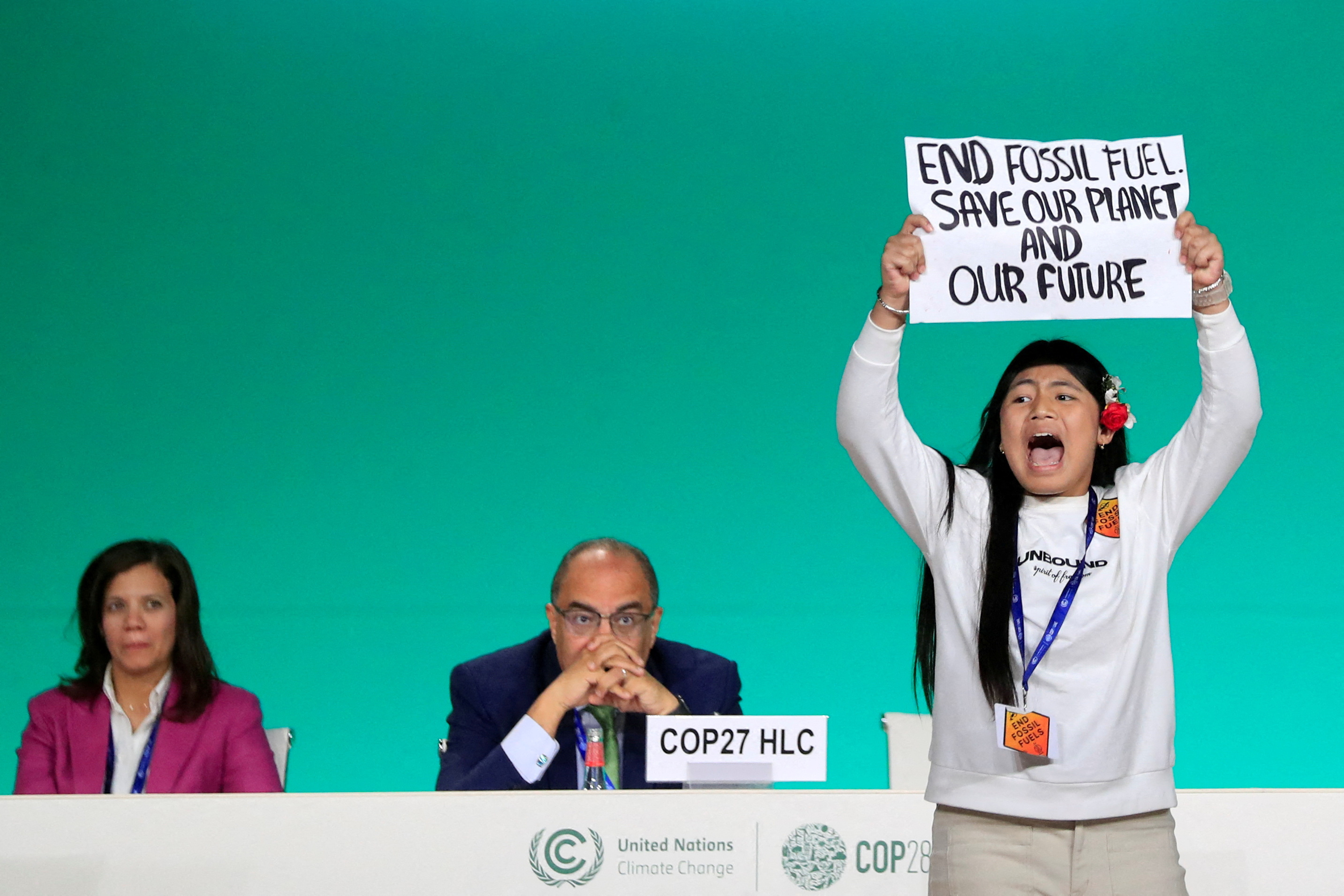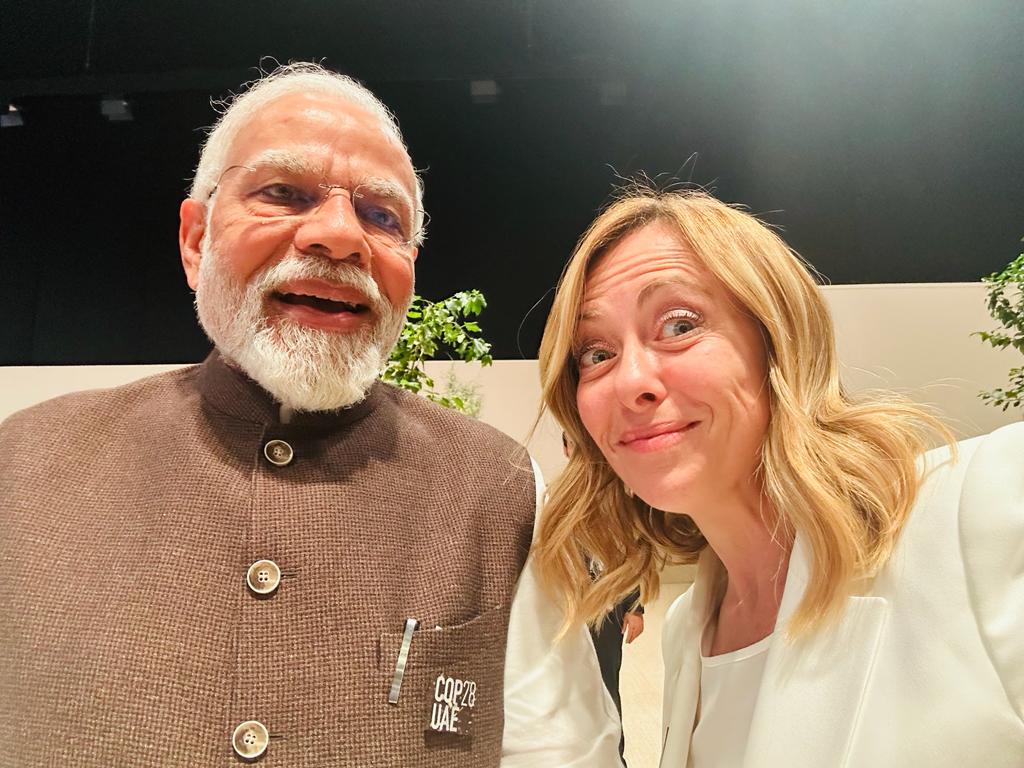
COP or the Conference of the Parties, a summit that takes place annually to discuss the progress towards reducing carbon emissions and reaching the target of ‘Net Zero’. This year, the COP28 summit was held in Dubai, UAE — which actually looked quite ambitious in hosting it — but, the ultimate result was a mix of hits and misses, and the latter overpowering the former mainly. Another notable point of the summit was India’s bid to host COP33 in 2028.
Brief History of COP
COP or the Conference of the Parties is a group of nations (parties) that have signed the UN Framework Convention on Climate Change (UNFCCC). It is also known as the United Nations Climate Change Conference of Parties and is the supreme decision-making body of the international convention. The summit every year, is attended by world leaders representing almost all countries, scientists, experts and business leaders.
It started after 154 countries at the Earth Summit in 1992 signed the United Nations Framework Convention on Climate Change (UNFCCC). Two years since then, all 198 signatories of the convention meet annually, since the first summit in Berlin in 1995. According to COP, the aim is to stabilise greenhouse gas concentrations to prevent “dangerous anthropogenic (human-induced) interference with the climate system”.

The global leaders at the COP28 summit in Dubai (Photo: New York Times)
The Developed v Developing Debate
Over the years, the major aspect that has come to the fore is the differences in the methods of developed and developing countries. The major point of concern arises as the developed world already has a significant level of industrialisation and a history of a lot of carbon emissions in the past. However, the developing world still has miles to go in terms of industrial development and also in terms of carbon emissions. Actually, if we look at the list of highest emitters; China tops with 11,336 million metric tonnes (MMT), the US is second with 5,032 MMT, India is third with 2,674 MMT followed by Russia (1,712 MMT) and Japan (1,602 MMT).
Because of this, India and even China, have never agreed to the West’s demand of stringent and drastic reductions in carbon emissions. India has set the target to reduce its carbon emissions by 50% of 2005 levels by 2030 and reach complete Net Zero by 2070. So far, India is one of the few countries that is on track to achieving its National Determined Contributions (NDCs).
The viral ‘Melodi’ selfie of PM Modi with Italian counterpart Giorgia Meloni (Photo: X)
Loss and Damage Fund
This very debate sparked the idea of the ‘Loss and Damage Fund’ which can very well be considered the major takeaway of this COP28 summit. The idea is that the developed nations should commit some amount to the poor countries affected by climate change to implement climate transition measures. Interestingly, this issue was long opposed by the US and other developed giants. Although it was finally passed at COP28, it is not without its complications.
The combined fund of over $700 million — which is just 0.2% of the irreversible economic and non-economic losses faced by developing countries every year from global heating — has been dubbed ‘insufficient’ by the experts. Several environmental organisations rate the actual requirement to be over $400 billion per year. The most appalling detail of this fund is that out of this $700 — in which UAE, France, Italy and Germany have pledged over $100 million — the US, which is the biggest emitter historically has only pledged $17.5 million so far.
Several experts have very rightly pointed out that through this ‘Loss and Damage’ Fund, the developed countries led by the US (of course) are only wiping out every historical responsibility of emissions so that specific fund assessment can’t be made and they can get away with just this $17.5 million and without any further damages. Not just this, according to several experts, the US is also playing the role of ‘obstructionist’ towards any Global Goal of Adaption. The developed countries also don’t want much focus on the Paris Agreement and play it safe with Article 2.1 which only calls for “making finance flows consistent with a pathway towards low greenhouse gas (GHG) emissions” and is often considered “vague” by several experts.

12-year-old climate activist from India’s Manipur, Licypriya Kangujam stormed into the summit with a placard (Photo: Reuters)
Omission of ‘Phase-out’
However, the major disappointment of the COP28 summit was the final centrepiece agreement missing out on the ‘phasing out of fossil fuels’. Despite, this phrase appearing prominently in earlier drafts and over 100 countries actively calling out for it, the final draft of the Dubai Summit mentions transitioning away from fossil fuels only as one of the 8 ‘options’. It only calls on the countries to “contribute” collectively to global efforts to reduce carbon pollution in a way that they see “fit”.
However, after much uproar, the final agreement adopted after the summit did mention ‘fossil fuels’ but again chose to omit the ‘phase out’ clause. Instead, the document calls for transitioning away from fossil fuels in the energy system “in a just, orderly and equitable manner, accelerating action in this critical decade, to achieve net zero by 2050 in keeping with the science.”
On expected lines, this shocking omission has drawn severe criticism from various sections. Climate advocate and former US Vice President Al Gore said that the summit is “on the verge of complete failure” and it is “even worse than what many feared”. Even though this is the first-ever deal calling for the reduction of fossils, the language is not giving the experts much confidence in what difference it can actually make. “We have language on fossil fuel In our final agreement for the first time ever,” al-Jaber,
Now, it shouldn’t be a surprise that who is behind this. It was those oil giants whose whole business empires depended on oils. According to several reports, OPEC Secretary General, Haitham Al Ghais called on the members to “proactively reject” any language that targeted reducing fossil fuel and instead focus on language of “emissions”. Reports say that Saudi Arabia, Iraq and Kuwait were the countries that used their negotiating power to make sure that nothing harming their business made it to the final draft. So, we should be very clear that “it’s not business, it’s strictly personal”.
Why has India shown interest in hosting COP33?
A major and quite surprising development at the COP28 was Prime Minister Narendra Modi during the summit proposition that India host the COP33 Summit in Dubai. “In spite of the 17% population, our global carbon emission is less than 4%,” PM Modi said. “India is committed to UN Framework for Climate Change and that is why I propose from this stage that the COP33 Summit in 2028 be hosted in India”.
Now, one must be curious as to why New Delhi has suddenly shown interest towards the Conference of Parties. As we saw quite recently, India is keen to project itself as the leader of the Global South. Even just prior to the COP28, PM Modi in an interview with UAE-newspaper Aletihad, said that the focus towards climate action “should not compromise” with the priorities of Global South, adding that it is the developing countries that suffer the most despite having the least share in emissions.
India also tried to place climate action as a strong point in its New Delhi Declaration at the G20 Summit. New Delhi has initiated measures like LiFE (Lifestyle for Sustainable Environment) that aim to encourage people to adopt sustainable lifestyles to tackle the challenges of climate change and environmental degradation. So, at this point, India hosting the COP Summit driven by India-centric measures for climate change will be another opportunity for Mr Modi to showcase some ‘muscle power’ once again, just ahead of the 2029 general elections (yes am assuming BJP win in 2024). And if India indeed hosts the event, don’t be surprised, if suddenly the media and environment make you believe that India has done great work towards the environment and also in curbing pollution.


